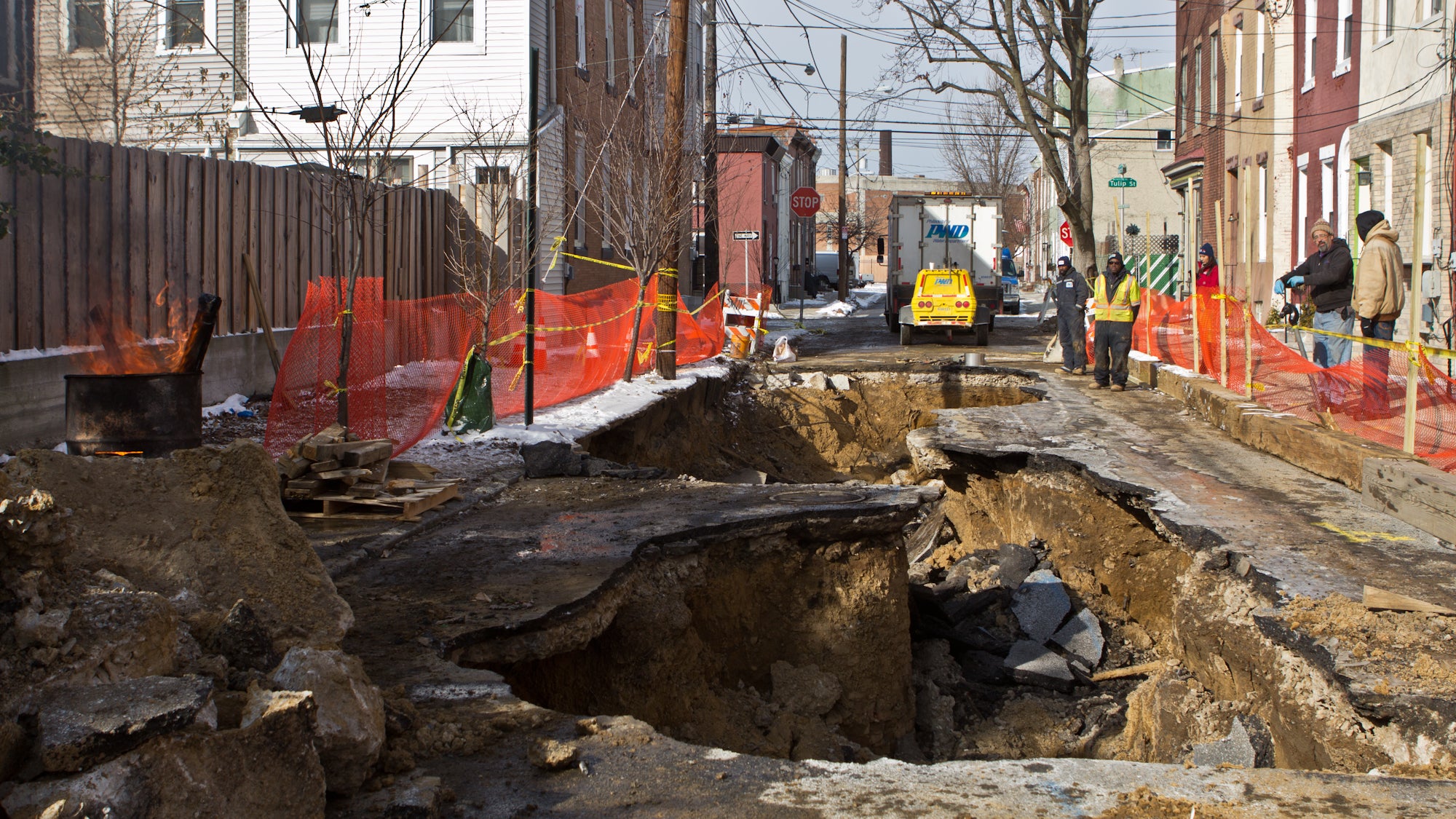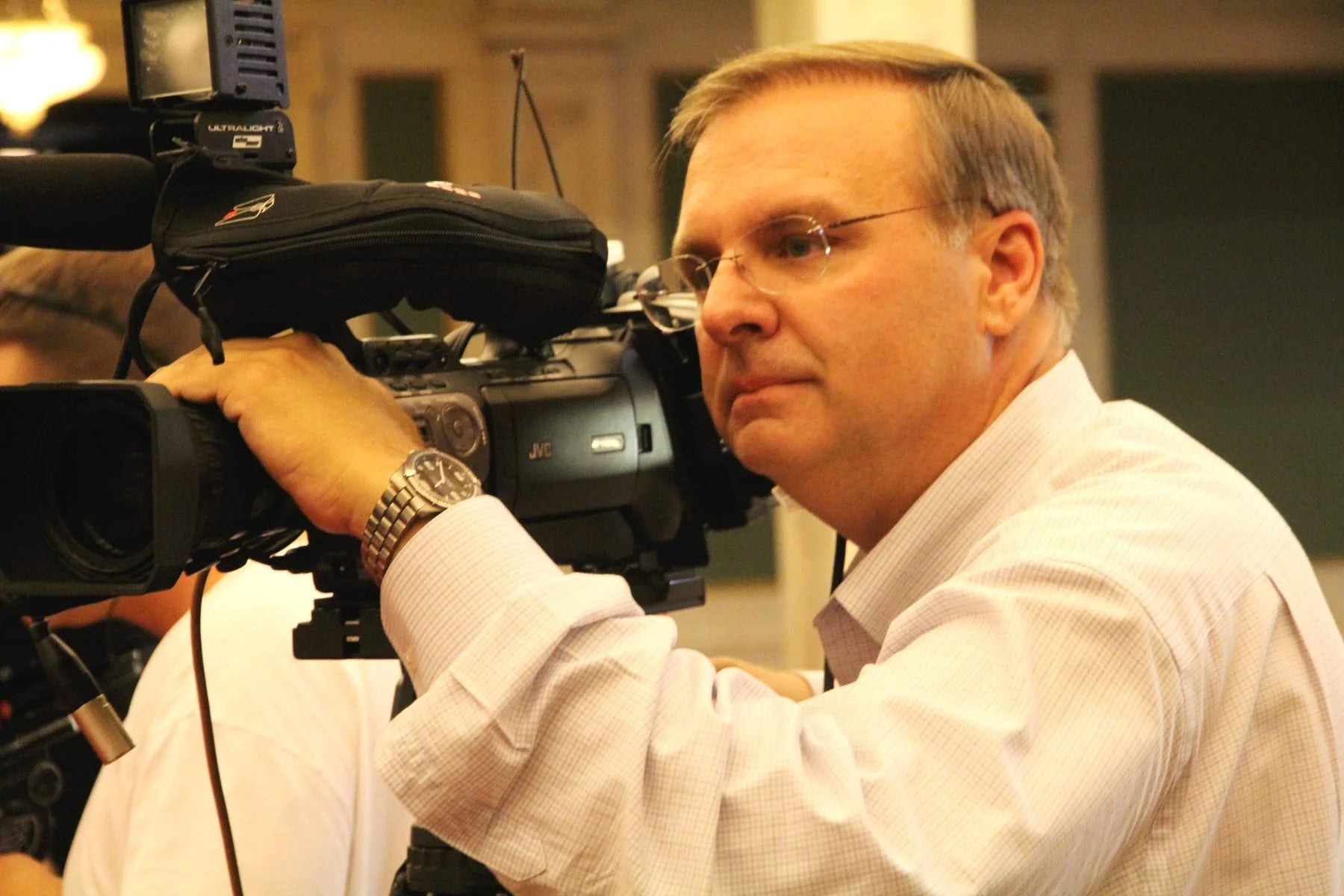Water main breaks more frequent in winter
Listen
A sinkhole is under repair at the 2300 block of East Boston Street. (Kimberly Paynter/WHYY)
A water main break in Philadelphia that hollowed out a city street over the weekend is likely to be one of many as winter takes hold.
Mains break more frequently from December through March, said John DiGuilio, a spokesman for the Philadelphia Water Department.
“You see a large volume of water main breaks happen in the winter months due to the cold water temperature going through the pipes. That has more of an impact on the pipes than the outside water temperature,” he said. “Cold water going through the pipes will cause more water main breaks than regular-temperature water.”
Sunday’s water main break caused a sinkhole to open up on a street in the city’s Fishtown section that was large enough to swallow two cars.
The 30 foot-by-10-foot hole developed as a section of East Boston Street collapsed after a 6-inch water main broke between 9 and 10 a.m.
The sinkhole absorbed one car and left another teetering on the edge. Twenty homes on the block were left without water. Gas service to six residences was shut off as a precaution.
Repairs were underway Monday, and bottled water has been provided to all affected residents.
The city does everything it can to maintain underground pipes, which have an expected lifespan of 100 years, according to DiGuilio.
“We do have water mains that date back to the early 1900s … 1902, 1904,” he said. “We do have some that date back to the late 1800s.”
Philadelphia spends about $46 million a year to replace water pipes.
WHYY is your source for fact-based, in-depth journalism and information. As a nonprofit organization, we rely on financial support from readers like you. Please give today.





